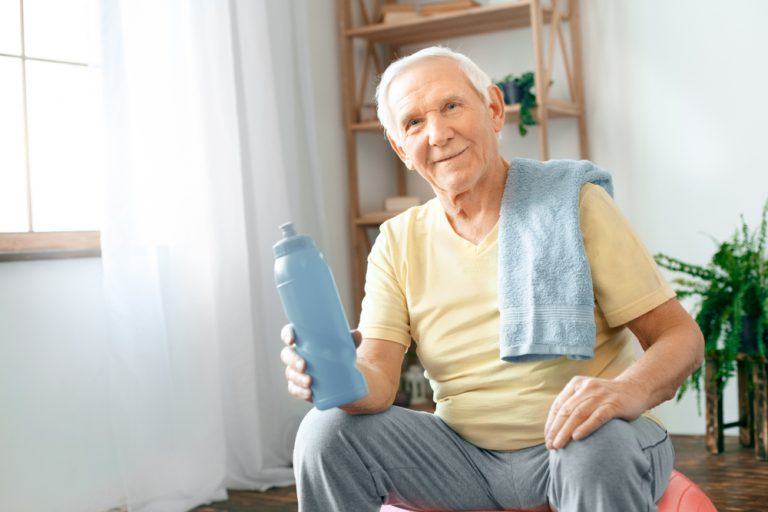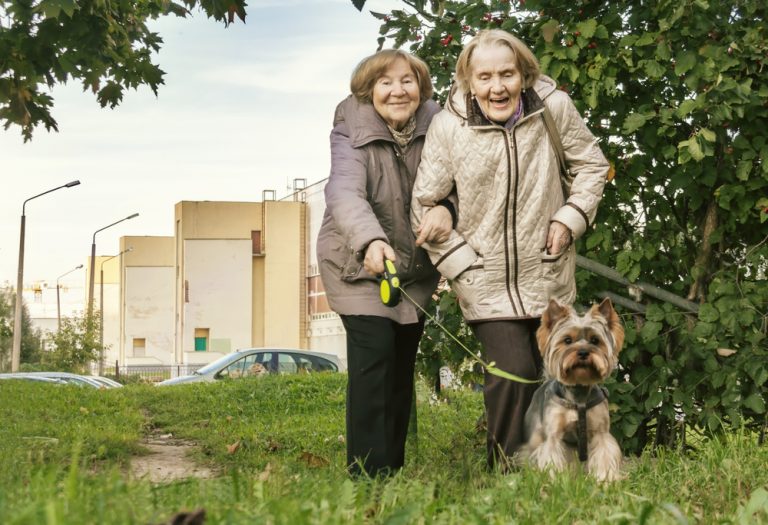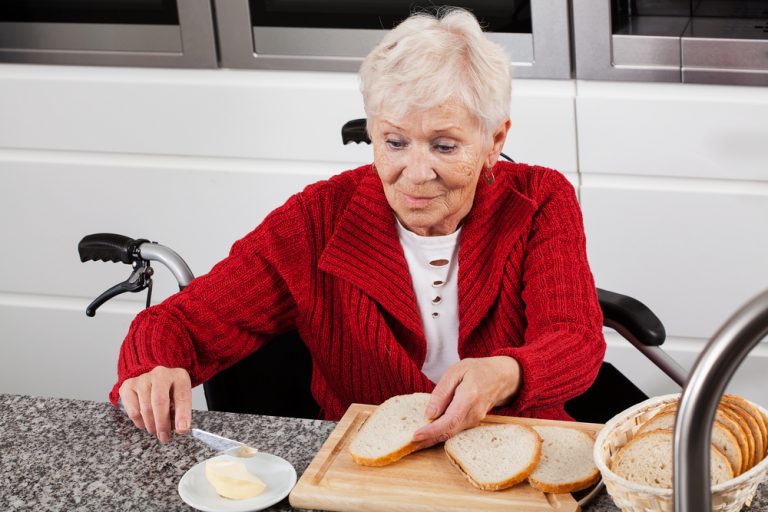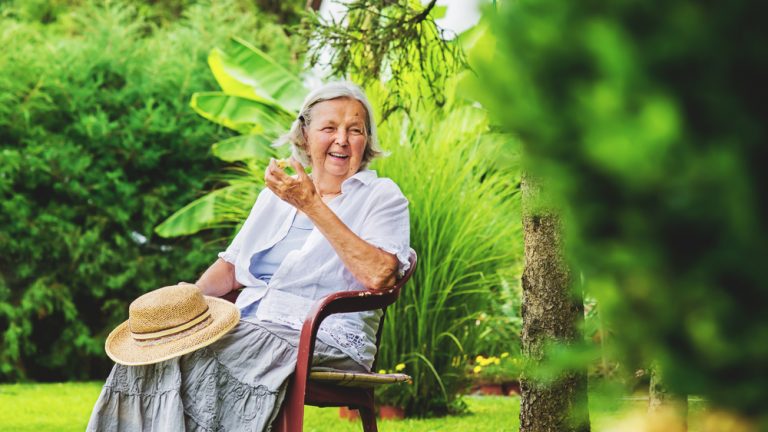
Between 24th and 30th January, many people in America will celebrate Healthy Weight Week.
Here in the UK, we have to wait until 13th June for Healthy Eating Week, but with Christmas just out of the way, what better time to look at how our loved ones can eat well and stay well?
Maintaining a healthy weight can be more of a struggle for vulnerable or elderly people, with a greater impact on their physical and mental health.
In this blog, we’ll look at the overall benefits of staying physically active in life, what your loved one should try to eat and drink, and why good sleep is important.
Get regular exercise in your life

There’s no secret to weight loss – we know fad diets are pointless and healthy living is down to a balanced diet combined with regular physical activity.
Being active could be as simple as your loved one and our Companion stepping out for a walk every week, something they can gradually increase as the weather gets warmer.
Why not suggest slotting in a monthly swim or perhaps a yoga session to give their body a boost?
Will a workout routine help maintain a healthy weight?

Absolutely. Whether you’re booking a strength training session or taking the dog for a walk, making exercise part of your regular routine makes it easier to stay in good health.
As well as the health benefits, having a fixed point in the week dedicated to exercise can also help ease stress levels and give your loved one something to look forward to.
Not to mention the bonuses of losing weight and developing healthy habits!
Tips for eating well to gain or lose weight

One of the keys to maintaining a healthy weight is a balanced diet, including all five food groups. The NHS has a BMI calculator which can help determine if your loved one is at a healthy weight.
Next, forget counting calories and crash dieting. If your loved one is struggling with obesity, neither will help improve yours or their overall health.
Stop dieting and instead, focus on putting together meals that feature plenty of vegetables and fruits. Stuck for inspiration? Here are lots of apps that can help you plan what you cook each week.
When it comes to a good diet, not everyone is looking to lose weight. Some elderly people have difficulty gaining weight and need extra support when it comes to eating well.
Try the following tips to ensure your loved one is getting the right nutrition,achieving a healthy weight and enjoying your food each week:
- Cut out processed and red meat. Eating too much leads to a higher risk of heart disease
- Encourage them to listen to their body – if they feel full, don’t force themselves to eat more
- Help them enjoy their food as much as possible, even if they’re on a restricted diet
The mental health benefits

Self esteem and having a positive body image can take a pummelling if your loved one is trying to lose weight, which is why a focus on mental health as much as the physical when it comes to having a healthy weight is so important.
Your loved one should take a few moments each day or week to clear their minds and relax.
Going with the flow will ease the stress in their life, and make it easier to adjust to and maintain even the smallest lifestyle changes to get to a healthy weight.
Set weight loss goals and surround yourself with people who will help support your loved one as they achieve those goals. Those good relationships will stand them in good stead, and could even inspire family and friends to follow your healthy eating and exercise examples.
Cut back on the booze

The NHS’ recommended units are an excellent guide to how much alcohol we should be drinking, but cutting back on the booze is a good cancer prevention tip.
Try swapping a glass of wine or beer for healthier juices packed with fresh fruits and vegetables, and if your loved one finds they are still tempted by bottles in the drinks cabinet, maybe use their weight loss target as an incentive to steer clear of having a tipple?
Is sleep key to a healthy weight?

The quality of your loved one’s sleep can be affected by what they eat and vice versa, so it’s important to make sure their meals are packed full of vitamins and minerals, rather than sugars and fats.
If they enjoy a relatively active lifestyle, coupled with a healthy eating regime, the chances are they will get lots of restful, restorative sleep on a regular basis.
Being rested will also set your loved one up for any regular physical activity, and will help keep them mentally alert.
Keep track of your progress

Everyone loves being complimented on how well they look, and being able to see the progress you make as your loved one makes life changes can make the difference between them sticking with it and giving up.
The NHS has made it super-easy to turn over a new leaf, with a 12-week programme that has an accompanying app, so they can see how far they’ve come.
How Age Care Advice can help
At Age Care Advice, our home care service includes making meals with or for your loved one, while our live-in carers and Companions aim to empower people, helping with everything from a spot of gardening to trips out.
You can find out more here, phone 01778 219639 or 07930 125081, or contact us here.
